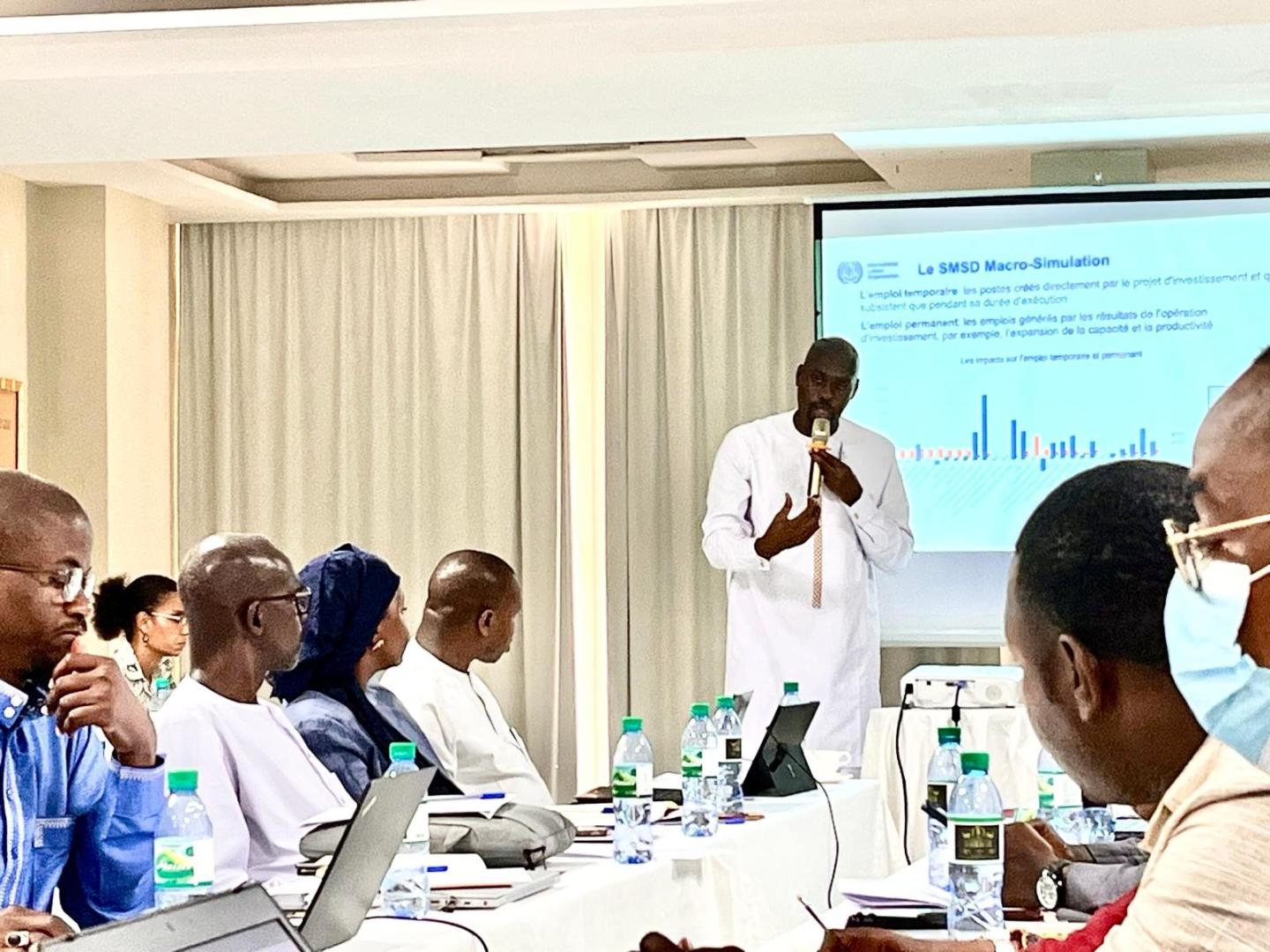Dakar - A technical workshop brought together relevant ministries, social protection institutions, social partners and civil society, as well as UN and development partners to discuss and validate Senegal’s Global Accelerator Roadmap on 28 May 2025. The workshop was a collaborative effort of the Directorate General of Planning and Economic Policy (DGPPE) of Senegal's Ministry of Economy, Planning, and Cooperation, and the International Labour Organization (ILO), with participation from UNICEF, UNDP and IOM.
Strengthening the existing social protection system, including its financing, in order to reduce fragmentation and coverage gaps has been identified as a priority area of the country’s roadmap. Senegal has a significant young population and youth employment has been a policy priority since 2004. The roadmap will also prioritize vocational and technical training for those currently outside the education system and unable to find stable employment.
Vision 2050, Senegal’s 25-year economic-development strategy, aims to accelerate the country’s development based on a systemic transformation. The Global Accelerator is a key opportunity to support these reforms. Mr Souleymane Diallo, Director General of Planning and Economic Policy (DDGPE), emphasized the Accelerator’s relevance in the country’s context, stating it creates synergies between public policies and public and private investments and will have a positive impact on economic recovery and the population. He also pointed out the full convergence between the roadmap and the national development priorities outlined in the Vision 2050 strategy. Ms Samira Daoud, Director, ILO Dakar, highlighted the importance of the tripartite consultative process that led to the development of this roadmap, which took place under strong leadership of the DGPPE.

The workshop drew on the experience of other pathfinder countries who have already developed and started implementing their national roadmaps. A presentation of the SMSD (Structural Model for Sustainable Development), which helps policy makers assess ex ante social impact of economic investments and economic impacts of social protection and other public policies, showcased the potential of the tool in the context of Senegal. Its application to support policy making can facilitate job creation, reduce poverty and inequality, reduce informality, extend social protection, and increase GDP and other macroeconomic indicators. The tool can help prioritize the integrated policies envisaged as part of the roadmap and the sources of financing. Finally, the workshop was also an opportunity to present and discuss the results framework for monitoring activities, results, and impacts in terms of extending social protection and job creation.
The follow up to the workshop will include political validation of the roadmap, more in-depth work on financing options, and starting the implementation around sectors, value chains, and geographies, to enable policy integration and implementation via sectoral investments or partnerships with the private sector. The United Nations and the World Bank are currently preparing a programme proposal which, if accepted, will support the next steps in implementation.